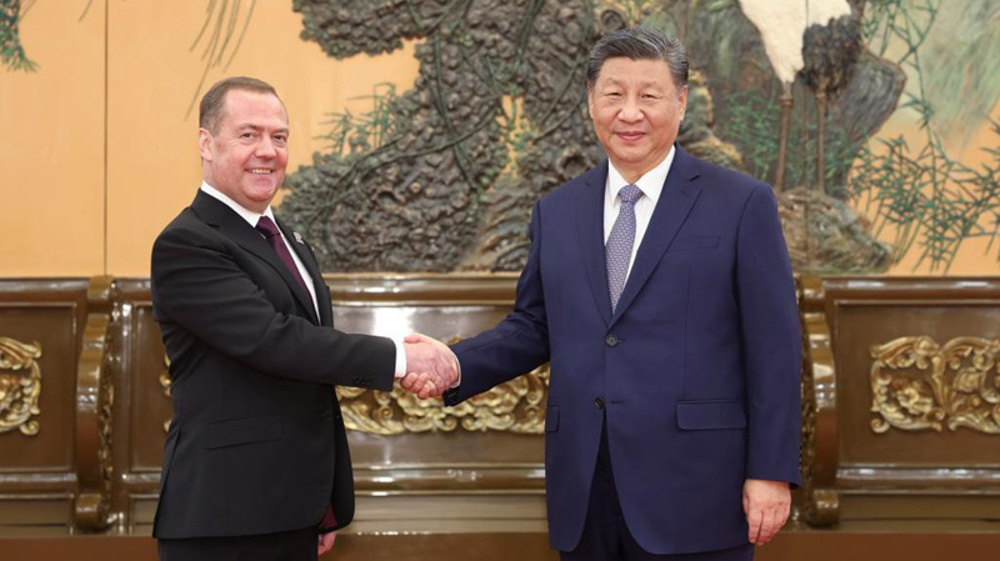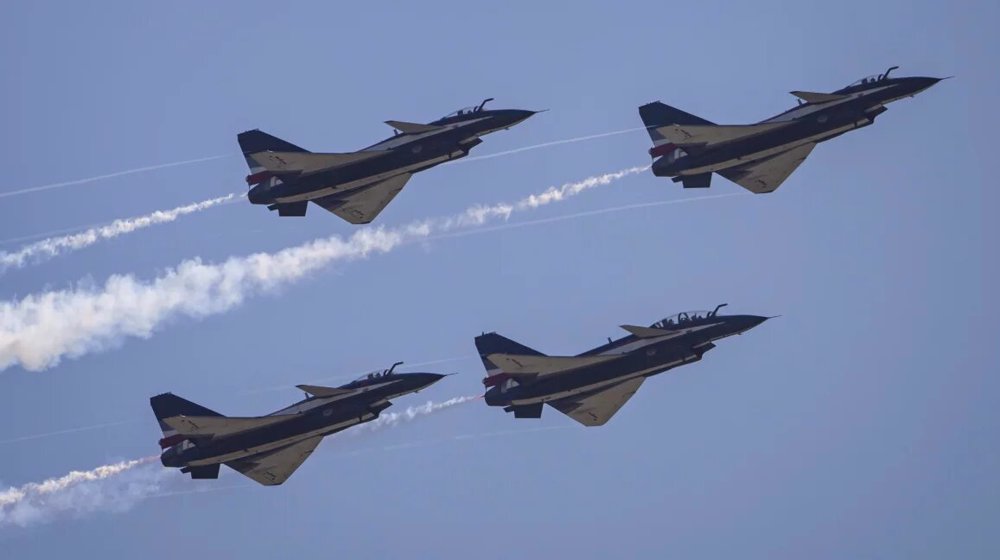China: US seeks 'absolute military superiority' in Asia
China has denounced US interventions in Asia, including in the South China Sea, and Washington's deployment of an advanced missile system in South Korea.
Defense Minister Chang Wanguan made the criticism at the 7th annual Xiangshan regional defense forum in Beijing on Tuesday, taking aim at US military operations near China's artificial islands.
"Some countries seek absolute military superiority, ceaselessly strengthen their military alliances, and seek their own absolute security at the costs of other countries' security," he said.
Tensions between the US and China have escalated in the wake of Washington's increased military involvement in Asia as part of President Barack Obama's "pivot" to the region.
The US says no region is more important to Washington's long-term interests than Asia. Political observers believe the United States tries to impose its hegemony on the region and check China's rise in Asia.
The US has carried out navigation operations near artificial islands built by Beijing in the South China Sea.
China claims sovereignty over almost the entire resource-rich South China Sea, which is also claimed in part by Taiwan, Brunei, Vietnam, Malaysia and the Philippines.
Addressing the forum, former Australian Prime Minister Robert Hawke warned that the disputes, if not properly managed, could become "a flashpoint for US-China conflict."
"These disputes have the potential to disrupt the entire regional order," Hawke said.
Beijing is also worried by Washington's plans to install a THAAD missile system in South Korea, saying it would destabilize regional security and "seriously harm the strategic interests of China.”
Many South Koreans are opposed to the plan, holding regular protests against the deployment.

Russian Deputy Defense Minister Anatoly Antonov slammed the plan on Tuesday while addressing a panel during the forum in Beijing.
"We are concerned about the attempts of certain nations to exploit the complex situation in the Korean peninsula," he said.
He said "pumping this sub-region with clearly excessive defense capabilities" has "aggravated regional tension."
China slams New Zealand
At the opening of the high-profile security forum, the Chinese government strongly criticized New Zealand's stance on the South China Sea dispute and urged it to avoid meddling in the row.
The reaction came after remarks by New Zealand Defense Minister Gerry Brownlee about his country's support for a ruling in July by an international tribunal in the Hague that announced China having no historic title over the waters.
"We hope that countries which are not involved in the disputes respect the countries which are having the disputes to work among themselves," chairwoman of China's foreign affairs committee for parliament Fu Ying said.
Outside meddling “can only complicate the differences and sometimes even add to the tension," she added.
Since the court ruling, China and members of the Association of Southeast Asia Nations (ASEAN) have been trying to reduce tensions in the region.
Defense Minister Wanquan told the forum that China and ASEAN would hold maritime drills next year.
Reuters, meanwhile, quoted a Malaysian general as saying that China has been exercising restraint, with no increase in military activity in the parts of the South China Sea Malaysia claims.
The Philippine defense chief said last week he has told the US military that plans for joint patrols and naval exercises in the South China Sea have been put on hold.
Philippine President Rodrigo Duterte plans to visit China soon and expects a bonanza of loans and trade deals from the much-anticipated state trip.
VIDEO | Press TV's news headlines
VIDEO | Iran honors top Science Olympiad medalists
VIDEO | Austrians arrested at Gaza protest in Vienna
10 killed in bus crash in western Iran
VIDEO | One-man-band journalism with Civili
5 Israeli forces killed as Palestinian fighters face up to regime’s war machine
VIDEO | An insider's view of the country: Persian Tahini, Royan in Mazandaran
VIDEO | Israeli settler killed during strike against Tel Aviv; fresh aggression targets Yemen’s capital










 This makes it easy to access the Press TV website
This makes it easy to access the Press TV website